How Do I Install SQLite On My Operating System?

SQLite is an incredibly popular open-source database engine which is used in applications of all kinds.
In this article, we’ll outline what is SQLite, how to install the latest version, and ways to manage databases using the software.
See Also: ServerMania Database Server Hosting
What is SQLite?
SQLite is a C-Language library which implements a SQL database engine. It boasts that it is the most used database engine in the world-as it is bundled in mobile and desktop software of all kinds. Some of the key features of SQLite include:
- Stability
- Cross-Platform Compatible: Databases can be copied between 64 and 32 bit systems, or little-endian / big-endian systems.
- Backwards Compatible
- Small Size: The entire library is less then 600Kb.
- Precompiled Binaries
The SQLite source code is actively developed and the developers plan to continue support until 2050.
Does SQLite need to be installed?
Depending on your OS environment, SQLite server may already come bundled with your Operating System. For example, Mac OS X comes pre-isntalled with SQLite and can be executed using the sqlite3 command. However, you may need to install SQLite in some cases and on other OSes.
How to Install SQLite On Mac
SQLite comes preinstalled on Mac, so you can simply open the terminal application and type sqlite3 to launch the server.
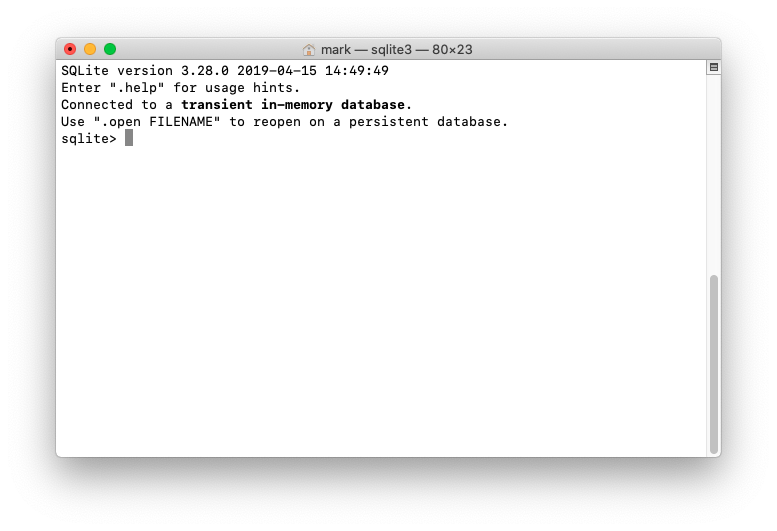
See Also: (Live Webinar) Meet ServerMania: Transform Your Server Hosting Experience
You can follow these instructions if SQLite is not automatically loaded for you on Mac OS X in order to install SQLite Mac:
Step 1: Download the SQLite ZIP File
You can download this file from the SQLite website here.
Step 2: Unzip the File
Extract the archive and moved the extracted folder into a convenient location.
Step 3: Start the SQLite Server
Right click on the sqlite3 file and click Open. This will allow you to execute a file from an untrusted developer.
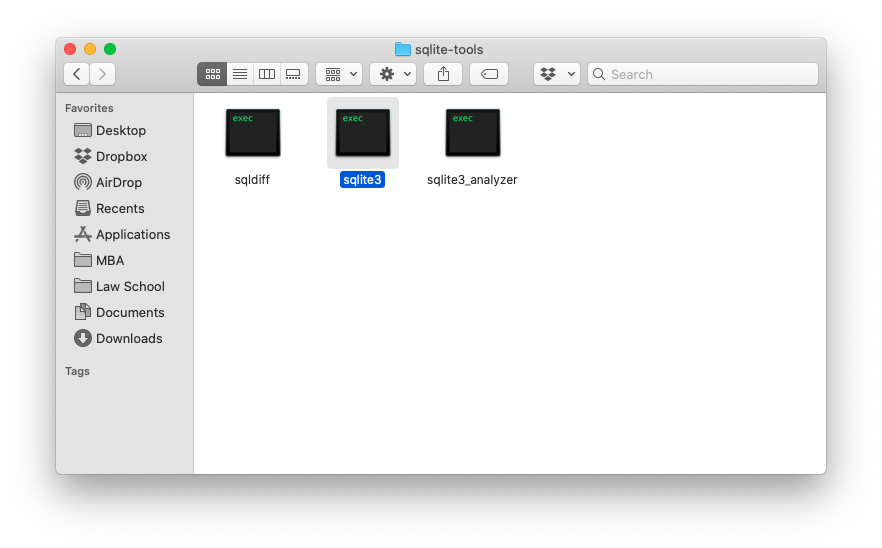
Click the Open button:
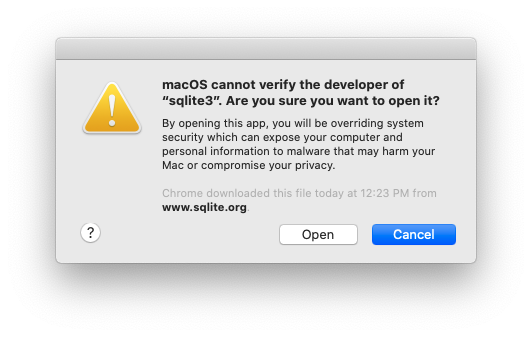
The SQLite Server is now running:
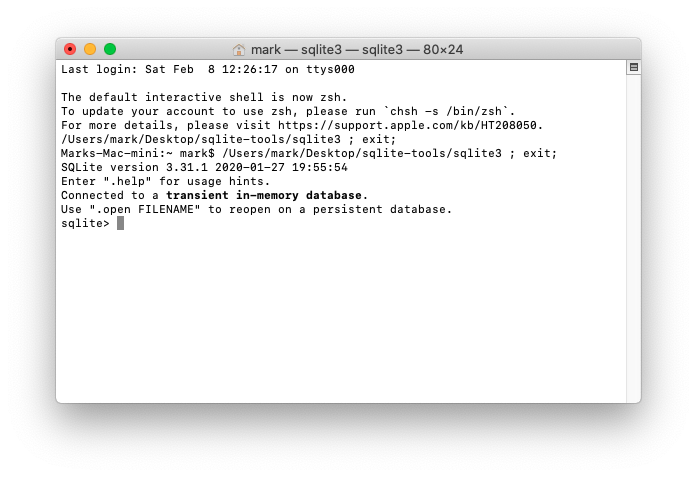
The server can be quit in Mac OS X by using the .quit command.
How to Install SQLite3 On Linux
SQLite can be installed on linux with the following commands:
Begin by logging in via SSH to your linux server and execute the corresponding command to your distribution:
Debian / Ubuntu
apt-get install sqlite3CentOS / Fedora / RedHat
yum install sqlite3You can now execute any sql statements using the sqlite3 command to start the server on your linux server.
How to Install SQLite On Windows
You can install SQLite Windows by following these steps:
Step 1: Download the SQLite ZIP File
You can download this file from the SQLite website here.
Step 2: Unzip the file
Right click on the ZIP file and extract it to C:\SQLite
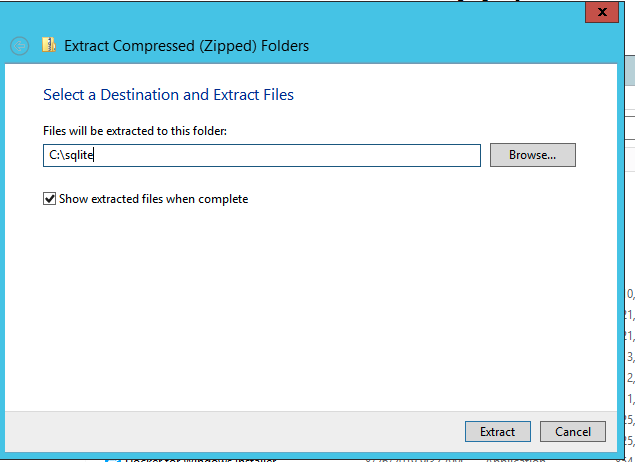
Step 3: Open SQLite
Double click the sqlite3 file to open the software:
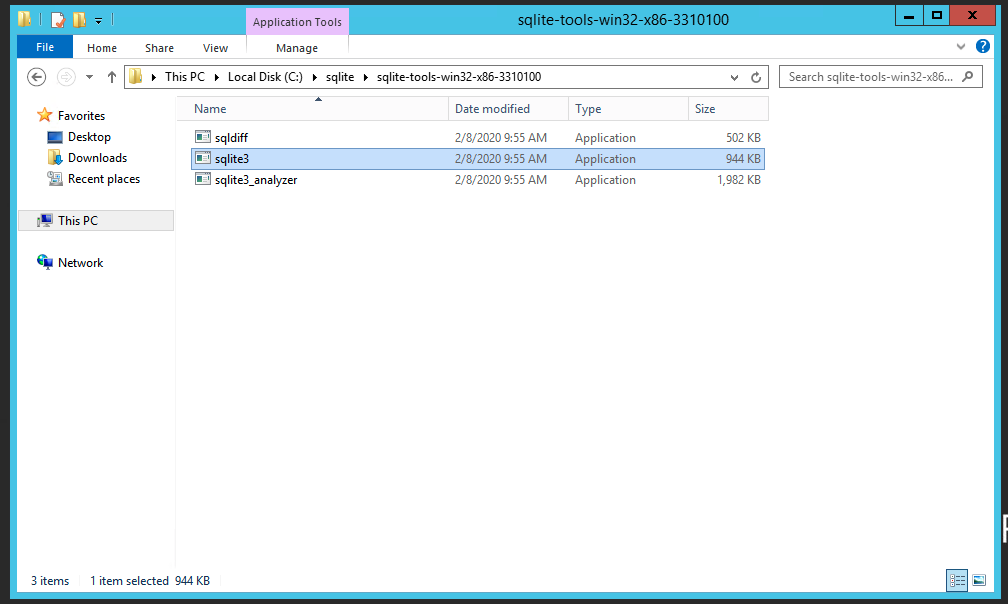
The software will then open in the command line and you can execute any sql commands:
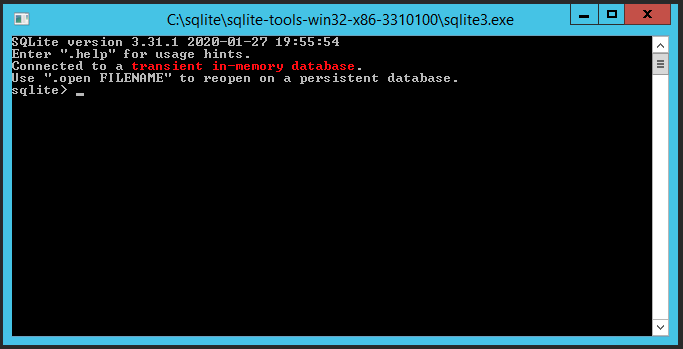
How to use SQLite
You can manage your SQLite databases on Mac or Windows by using GUI tools such as SQLite Studio. If you are new to the software, we would recommend using a test db or sample database in order to get the hang of things.
How to open SQLite file
Once SQLite has been installed on the respective Operating System, you can use the .open command in order to open an SQLite file. For example:
.open C:sqlitedatabase.dbWhere do I put SQLite DLL?
The SQLite DLL file can be placed on Windows in C:WINDOWSsystem32 folder if needed to manage your database files.
Questions about managing your SQLite database server?
Leave your comments and questions below! You should also consider reviewing our Database Hosting Solutions if you’re looking to deploy a database server.
ServerMania not only supports businesses with technical tutorials, but also through enterprise focused solutions such as colocation and server cluster configurations. For these advanced partnership opportunities, please book a free consultation with our account executives today.
Was this page helpful?

